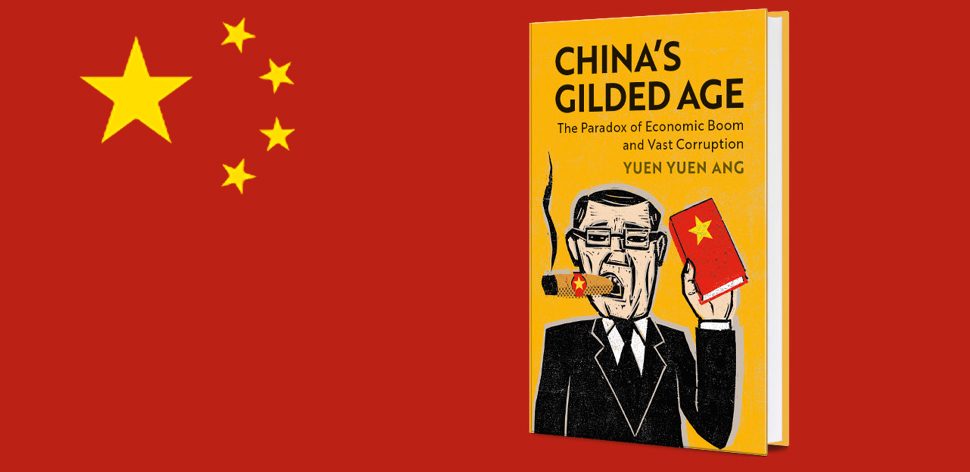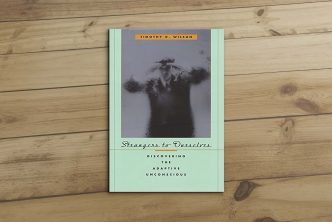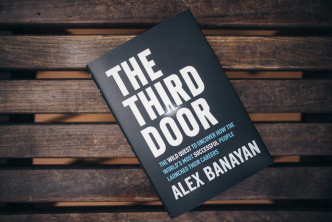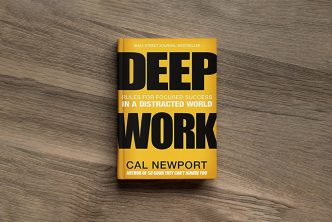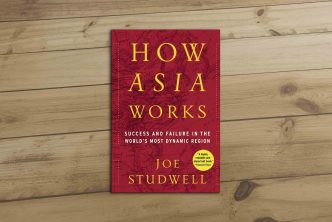Review: China’s Gilded Age: The Paradox of Economic Boom and Vast Corruption, by Yuen Yuen Ang, July 2020, pp. 266, Cambridge University Press.
China’s global dominance is irrefutable, as the second-largest economy in the world. Embracing market reforms in 1978, China has delivered dizzying economic growth at a 10 percent average annual growth rate of its gross domestic product (GDP). Although China’s GDP growth rate has slowed down (6.1 percent in 2019), it still outperforms its peer countries. On poverty alone, China has exited over 850 million Chinese from abject poverty, with the poverty rate dropping from 88 percent in 1981 to 1.7 percent in 2019.
All of this progress was achieved under a cloud of persistent corruption. According to the Transparency International’s Corruption Perception Index, in 1995, China scored 21.6 percent to rank as the 40th most corrupt country out of 41 countries and 41 percent in 2020 to rank as 80th out of 180 countries. This seeming conundrum challenges conventional thinking on the impact of corruption on economic growth. The long-held convention, especially in Nigeria, is that economic progress is not possible because of corruption. Yuen Yuen Ang, a professor of political science, has put a big hole in that balloon. Her latest book, “China’s Gilded Age,” posits that all corruption is not equal. Some types of corruption hurt economic growth worse than others.
In the book, Ang sets out to unbundle corruption from its monolithic definition, where a score is applied to every country. She unbundled corruption into qualitatively distinct types and then measures them across 15 countries to conclude that different types of corruption have differential economic impacts.
The first dimension differentiates the nature of the corruption between two-way exchanges (between state and social actors) and direct theft from the government coffers. This distinction is important because where the former entails (“exchange”) generates some benefits for the transacting parties, a raid on the state coffers (“theft”) generates a net loss for society. The situation is worse when the stolen funds are in foreign bank accounts, used in buying assets in a foreign country, or buried underground (as reported in Nigeria).
The second dimension highlights the difference between corruption involving the elite (such as politicians and other leaders) and non-elite actors (such as regular civil servants and street-level bureaucrats: police officers, customs officers, and frontline providers public services). The corruption involving the elites involves control of access to valuable resources (budget allocations, contracts, licenses, waivers, etc.). In contrast, those involving the low-level actors consist of discretion within a narrow sphere of influence: traffic ticketing, processing official documents, etc. The corruption involving the elite has a more than proportionate economic impact due to the high monetary value.
Using these two dimensions, Ang categorised corruption into four variants. The two variants of corruption involving theft include petty theft and grand theft. Petty theft refers to the act of stealing, embezzlement, or extortion amongst street-level bureaucrats. Think of bribes to the traffic police and other low-level bureaucrats. Grand theft refers to stealing, embezzlement, or misappropriation of large sums of monies by the elite: senior political and economic leaders and those who have access or control of public funds. While all forms of corruption are harmful, these two variants of corruption are toxic because they subtract value from the system while adding nothing in return.
The two variants of corruption involving the exchange of value between the state and social actors include speed money and access money. Speed money refers to the small bribes paid to low-level bureaucrats to “speed things up” or workaround bureaucrat bottlenecks. Access money refers to the exchange between high-level elite and other social actors. In this variant, the social actors bribe powerful officials to access special privileges: licenses, contracts, budget allocation, waivers, etc.
The book points out that, like drugs, the different types of corruption are harmful, but they harm differently. Both Petty theft and Grand theft are like a toxic drug that destroys the system. Speed money is like a painkiller, while Access money is like anabolic steroids; both can help one solve a problem, but, over time, there is a prize to pay for the side effects.
Here is the difference between the type of corruption in China and the one prevalent in Nigeria. China has a “growth-friendly” form of corruption. For the political elite, career progression and financial rewards from graft are linked to economic prosperity. From the lowest Communist Party official to the Politburo members, it is clear that the only way to progress is to deliver economic and social progress. Progress is measured using clear terms and appropriately rewarded with higher responsibilities within the Party. No one moves from a position in the Party to a higher one without delivering measurable economic progress. The situation is much different in Nigeria, where failed politicians (like Governors) are rewarded with a higher office (Senate) without either their parties or society pushing back in any way.
Corruption in China is “transactional,” where party officials operate a “profit-sharing” model. They accept graft to provide “access” for companies to win bids or provide a service. In most cases, the beneficiary of the corruption is the leading or well-qualified provider of the service. On the contrary, in Nigeria, the political elite steals directly from the pot without any thought to service provision. While in China, corruption takes the form of extending a “helping hand,” the political elite in Nigeria “grab” from the business, not minding if such action leads to the death of that enterprise.
This practice permeates from the elite down to the street-level public officials. Like their Nigerian counterparts, they are poorly paid and do not have a seat at the feeding troughs. They, too, operate a “profit-sharing” model against the extortionist model that exists in Nigeria. Given that the entire system is primed for delivering measurable economic and financial progress, the junior level officers’ performance outputs are measured and become the basis for their progression within the service. The graft that occurs at that level is also primed towards delivering progress versus extortion.
Although all variants of corruption are present in every country, there is always a dominant type, and it determines the impact of corruption on the state’s economic performance. “Access money” is the most prevalent form of corruption in China. From a capitalist point of view, it is seen as a form of investment. In places like the United States, corporations spend billions of dollars “lobbying” for various access forms because the returns on the investment exceed the cost. This variant of corruption is mutually beneficial to both the government elite and the social actors. While it encourages the politically connected capitalists to invest and build, the political elite secures the investments which enable their advancement within the Party. Like steroids, “access money” has its risks. According to Ang, corruption can fuel an economic collapse through speculative investments in one sector (say, real estate), widens income inequality between the connected and nonconnected capitalists, and entrenches vested interests that can block liberalisation.
Cognizant that corruption in whatever form is a malady that needs to be rooted out, the leadership of China’s Communist Party displayed visible, verifiable commitment to its fight against corruption. Starting from 1988, the Party invested significant resources in capacity-building programmes on corruption reforms with commitment from the Politburo’s highest levels to the local leaders. The Party made public examples of senior party officials, including Bo Xilai, a “princeling” of the Communist Party. Bo Xilai is the son of Bo Yibo, one of the Eight Elders of the Communist Party. He was a former Mayor of Dalian, former governor of Liaoning, former Minister of Commerce, and former member of the Politburo and Communist Party Secretary of Chongqing. He was in line to become Prime Minister of China; yet, he is serving a life sentence in a Chinese prison.
The commitment of the Communist Party has resulted in a pattern where although “access money” is the prevalent variant of corruption, there is a visible decline in embezzlement of government funds, misuse or misappropriation of public funds, and extortive practices. The government understands that to fight corruption, it needs to channel it away from its most destructive forms. It has achieved this feat by creating both positive and negative incentives. Public officials know that when they achieve economic progress in their government units, they qualify for performance bonuses and much higher responsibilities. In China, career advancement is based on measurable performance and not ethnicity, religion, nepotism, or other ills. The Chinese government proved its commitment to punish anyone who goes afoul of the law irrespective of how blue their blood may be. If Bo Xilai can spend the rest of his life in jail, who is the lowly public servant who wishes to indulge in extortive corruption.
Performance measurement and reward are useful tools for fighting corruption. Although China does not have universal plebiscites, party operatives and public servants know that the most-assured way to advance in one’s career is to deliver results. This practice leads to intense competition between the regions to experiment with policies and strategies that make their regions attractive to investors. The more investment they attract to the region, the higher their standing within the Party. The Chinese who gifted bureaucracy to the world have deepened their performance measurement to drive performance and minimize the opportunities for the destructive forms of corruption. Nigeria needs to introduce performance in their public service.
Using the “Unbundled Corruption Index” (UCI), China is in the same ballpark as Nigeria in terms of corruption; yet, China can deliver enviable economic growth, but Nigeria is not. The difference is in the variant of corruption in both countries. Corruption will continue to impact Nigeria’s economic development because its variant of corruption, “Grand Theft,” is anti-development. State resources are siphoned away (stolen), and this results in various forms of socio-economic underdevelopment that makes the country unattractive to investors. Unlike the variant of corruption in China, the situation is “access money,” a form of exchange that encourages a type of investor to see corruption as a form of investment.
Governments should use the new typology of corruption to seek a more in-depth understanding of the type of monster they seek to cage. This understanding should inform the anti-corruption strategy in different countries. This analysis should clarify to Nigeria that “Grand Theft” is inimical to economic growth and will slowly but surely lead to the drying up of investments in the country.


